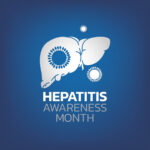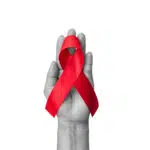Maternal Mental Health Month is observed in May of every year. It’s the month to give importance and raise awareness to every mother’s mental health during and after pregnancy. Most new mothers get the ‘baby blues’ during pregnancy — with symptoms including irritability, fatigue, and anxiety. Moreover, studies show that about 20% of new mothers show signs of a postpartum disorder, with symptoms ranging from anger, guilt, and shame, to lack of interest in the baby. It is important to know that mothers can seek medical help without the fear of judgment. This month is about eradicating the stigma of these illnesses and showing support to mothers who go through them.
History of Maternal Mental Health Month
Despite being considered a relatively modern illness that most people haven’t been aware of until recently, postpartum disorder’s origin can be traced back hundreds of years ago. In 460 B.C., Hippocrates wrote an account after observing a woman suffering from a mania of agitation and delirium shortly after giving birth. This observation still heavily defines what is still considered postpartum disorder today.
In the 14th century, a woman named Margery Kempe became prominent after displaying signs of madness due to rough labor and delivery. Before the contemporary research and scientific facts presented, Kempe was labeled as a ‘madwoman’ by her community due to the symptoms she suffered. She described visions of demons, God, and the Virgin Mary during her long period of recovery. Historians studied her case and deemed that this was a case of postnatal psychosis, and not a postpartum disorder. This was the turning point in history when a distinction between the two illnesses was made.
In the 16th century, physician Castello Branco recorded a case of postpartum depression when a perfectly healthy woman experienced extreme melancholy after birth. This progressed into insanity which lasted for a month. However, it was in the 19th century when people started to develop a new attitude and approach towards this illness. The short story “The Yellow Wallpaper” by Charlotte Perkins Gilman was published, tackling the depressive and hysterical tendencies of an unnamed woman after birth. She wrote this in protest of society’s oppression against women who suffer from mental health illnesses during and after birth — as she experienced the same.
In the 21st century, more people are now well aware of the scientific bases of postpartum illnesses. Doctors, healthcare professionals, and women all over the world strive to normalize and not stigmatize this illness. The first Maternal Mental Health Month was proclaimed in May 2014.
Maternal Mental Health Month timeline
Hippocrates observes a woman suffering from mania and hysteria after giving birth.
The difference between postpartum disorder and postnatal psychosis is established after Margery Kempe exhibited signs of the latter.
Postpartum disorder reaches mainstream attention after writer Charlotte Perkins Gilman publishes a short story about postpartum illness.
The first Maternal Mental Health Month is proclaimed in May.
Maternal Mental Health Month FAQs
What is the treatment for postpartum depression?
The treatment depends on the severity of the illness. It can range from counseling, and emotional support, to medication.
When should I go to the doctor for postpartum depression?
Mothers who experience signs of disconnection to the baby, melancholy two weeks after giving birth, or the inability to cope should seek professional help from mental healthcare experts.
How can I prevent postpartum depression?
There are several ways to prevent any form of maternal illness. These include joining support groups, getting enough rest, getting out of the house, or spending alone time with your husband or partner.
How to Observe Maternal Mental Health Month
Get certified as a mental health aid
Being a helping hand to mothers suffering from maternal mental illnesses is the best support you can give. You can apply as a mental health aid at the Mental Health First Aid (M.H.F.A.) The certification only takes three days of training by professionals.
Attend seminars and virtual discussion
You may attend seminars conducted by mental health groups. Listen to mental healthcare workers as they discuss the importance of raising awareness of maternal mental illnesses.
Donate to charity
There are many charitable organizations dedicated to maternal mental health awareness. These non-profit organizations are dedicated to helping mothers who suffer from maternal mental health. You may reach out to National Alliance on Mental Health, The Jed Foundation, and the American Psychiatric Association Foundation (A.P.A.F.) to name a few.
5 Facts About Postpartum Depression
The causes of postpartum illnesses
Several factors can cause postpartum illness such as lifestyle, physical and emotional state, and genetics.
Maternal mental illnesses are common
10% to 20% of pregnant women will experience postpartum-related illnesses.
The first six weeks are crucial
The postpartum disorder can be experienced during the first six weeks of post-pregnancy.
A new mom is at risk
According to the American Psychological Association, new mothers are the most susceptible to postpartum illnesses.
Sleep deprivation can trigger postpartum disorders
While sleep deprivation is common if you’re a new mom, it can also trigger some postpartum symptoms.
Why Maternal Mental Health Month is Important
We love mothers
Being a mother is difficult and being a new mom is even harder. Maternal Mental Health Month allows everyone to show support and love to moms who are struggling with maternal mental illnesses.
It normalizes the stigma
Mothers often have the fear of judgment when it comes to maternal mental health. This month-long observance is dedicated to eliminating the stigma. It’s the time of the year to show that maternal mental illnesses are common and manageable.
Helps raises funds
Charities and non-profit organizations raise funds not only for research but for financial help to those who need mental healthcare assistance. Unfortunately, not every mother has the budget of seeking professional help. These associations are there to support them.
Maternal Mental Health Month dates
| Year | Date | Day |
|---|---|---|
| 2026 | May 1 | Friday |
| 2027 | May 1 | Saturday |
| 2028 | May 1 | Monday |
| 2029 | May 1 | Tuesday |
| 2030 | May 1 | Wednesday |











































































































































































